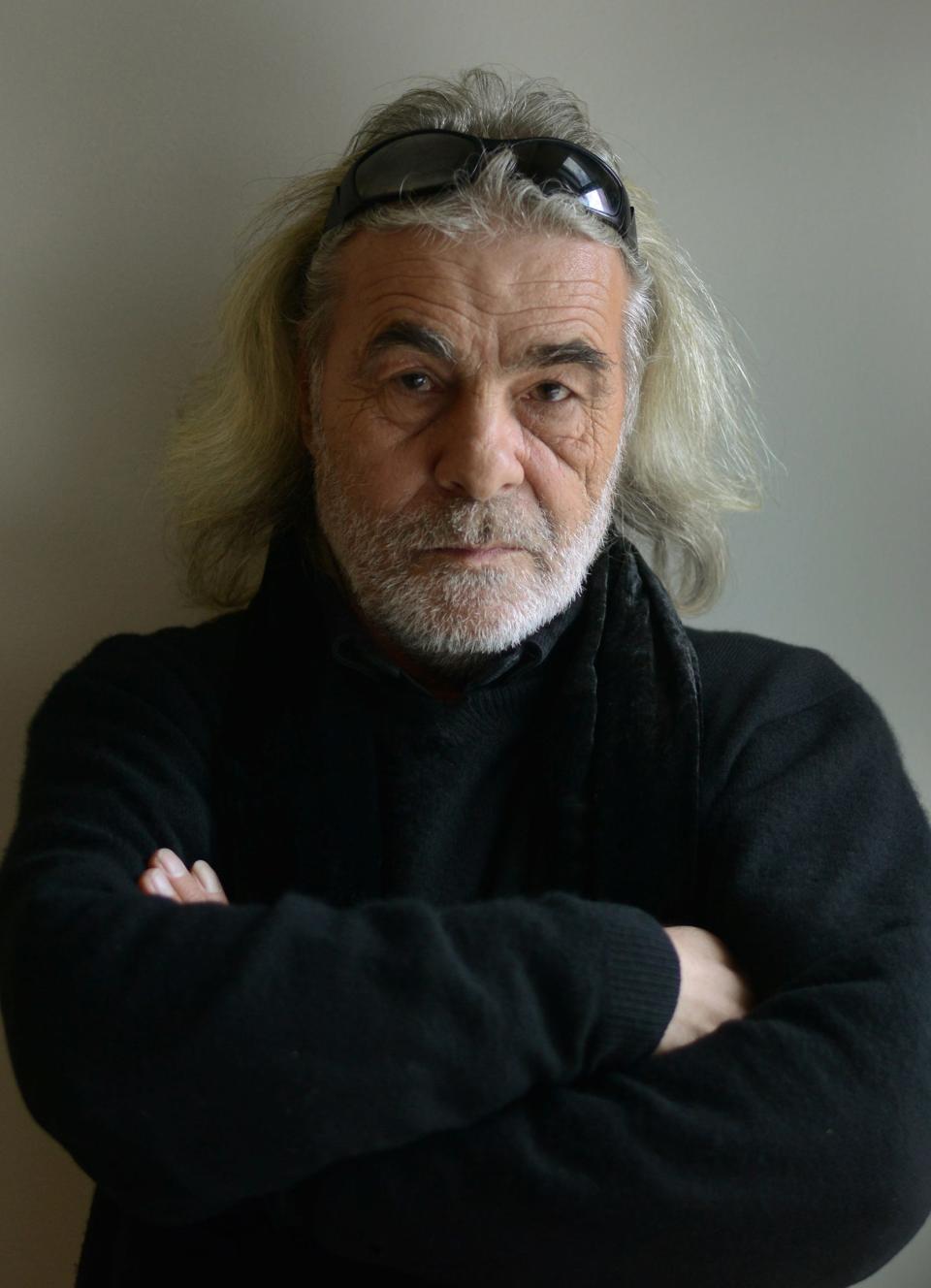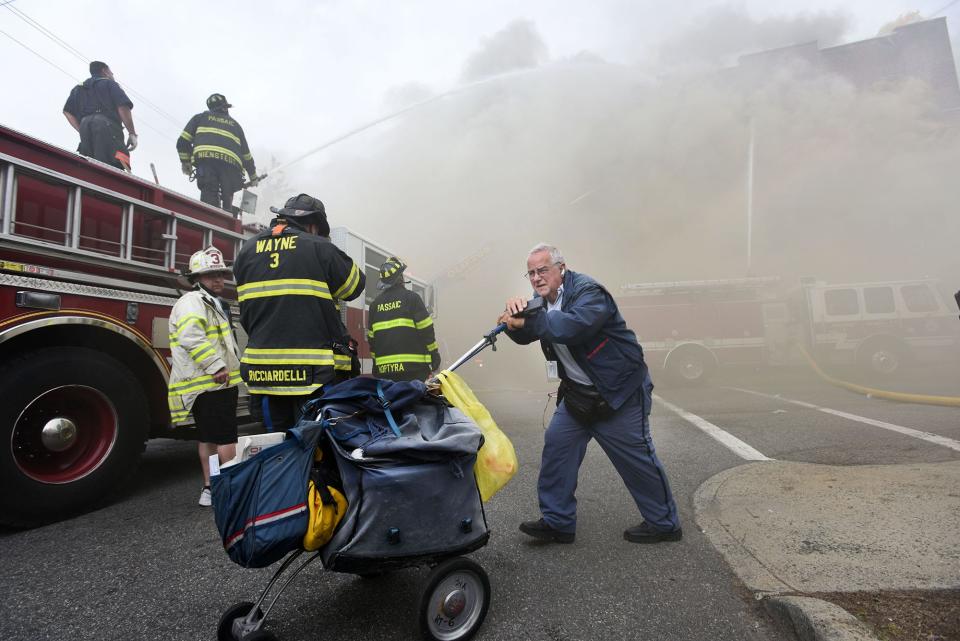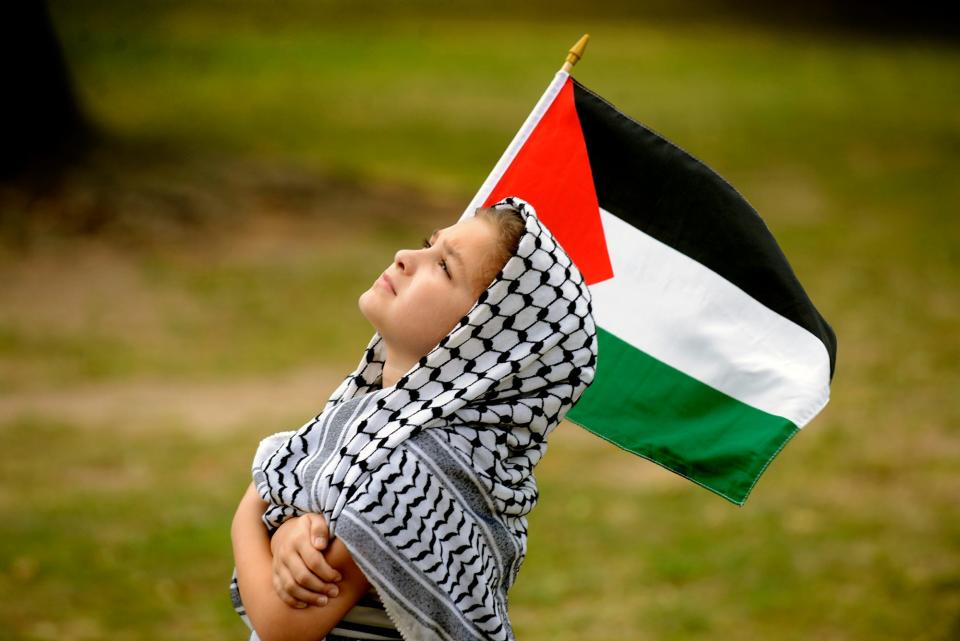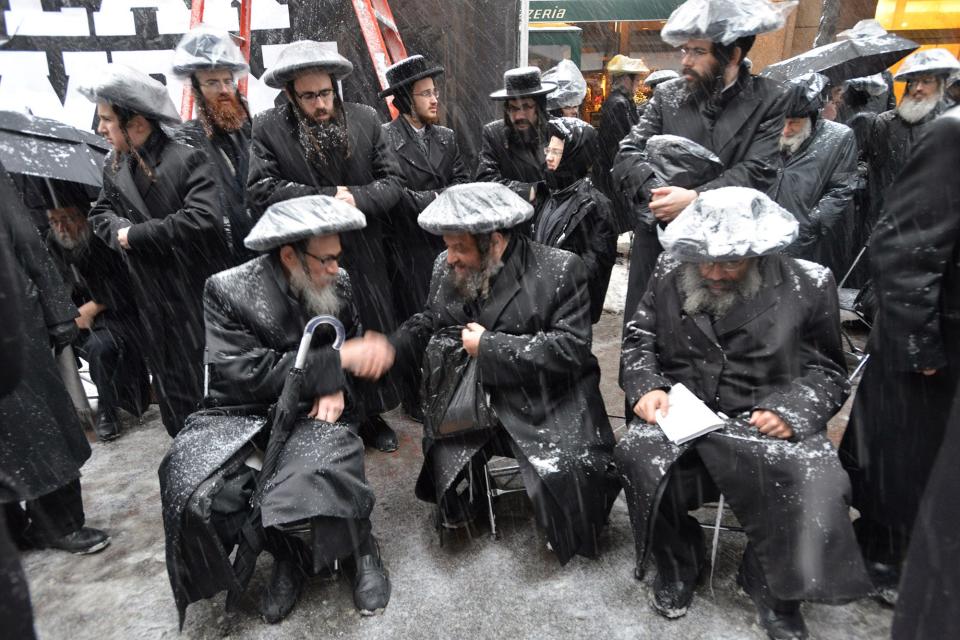Viorel Florescu, Pulitzer-winning photographer, captured plight of those in conflict zones
Viorel Florescu, the Pulitzer Prize-winning photojournalist whose work captured the plights of those living in conflict zones around the world, died April 30 in Pennsylvania after a brief bout with cancer. He was 72.
During Florescu's long journalism career — which began in the early 1980s with the Connecticut Post and continued with Newsday, the New York Daily News and The Record — he sought to capture what his life partner Deirdre Scott called "the unvarnished truth."
"His nature suffered the intolerance and injustice that he saw," Scott said. "That was part of what drove him to let his photography explain to us what he was seeing. And also to dispel any lies and myths that might be brewing out there ... he had a deep-down yearning to tell the truth."
This led to raw, sometimes shocking images that dropped viewers into harrowing scenes from which there was no escape.
In 1987, that was a cement room whose floor was stained with the blood of a half-dozen Haitians butchered during the country's first free elections in 30 years. In 1993, it was a verdant field outside Odesa where desperate Ukrainians shot heroin into their arms.
Later, it was a Bangladeshi sick ward, alongside a gaunt leper. Or inside a state facility in Florescu's native Romania, gazing down at a skinny, abandoned child reaching for the camera.

Through it all, Florescu focused his unflinching eye on ordinary people seized and choked by the torrents of history.
"My father always cared about the little guy," said Florescu's son, Alexandru. "He cared about the homeless, the working man. He had to make sure everybody knew the truth about what was going on."
Florescu was born on June 29, 1949, in the medieval Romanian city of Sighisoara to Alexandru and Eugenia Florescu.
He loved music and films, and in his youth he dreamed of becoming a cinematographer.
As an adult, he found work as a photojournalist. But he left the job after six months because being a journalist in 1970s Romania meant he would be little more than a propagandist for dictator Nicolae Ceaușescu, Forescu said during an event at the Romanian Cultural Institute in New York last September.
His inherent rebellious streak wouldn't allow that. So in 1979, he left the country with his new wife, Florina, her daughter, Anca, and the couple's infant son, George.

They stopped in Italy, settled in Connecticut and had another son, Alexandru, in 1983.
Florescu began working at the Connecticut Post, then went on to New York Newsday, the Long Island paper's now-shuttered New York City edition, and the Daily News. He came to The Record in 2012.
His assignments took him to five continents, where he documented the conflict between Israel and Palestine; child soldiers at war in Sierra Leone, Liberia, Colombia and the Philippines; the fallout from the collapse of the Soviet Union and Yugoslavia; the American invasion of Afghanistan; Hurricane Katrina and the Romanian Revolution.

He always gravitated toward the plight of individuals crushed by the horrors of geopolitics, said Jon Naso, a friend and colleague who worked with Florescu at Newsday and The Record.
But Florescu's philosophy was surprisingly simple.
"You don’t plan," he said last September. "Everything is in front of you and you just have to make sure that you get the right moment, and you’re going to know if it’s the right moment immediately. And that’s going to stay with you, regardless if it’s a historic event or just the usual day-in-the-life."
His images — also published in Life, Newsweek, Time, the Los Angeles Times, The New York Times and numerous international newspapers and magazines — won him a plethora of awards, including a Pulitzer in 1992 for his coverage of the Union Square subway derailment in Manhattan and another in 1997 for his work on the TWA Flight 800 crash off Long Island.
He also won a World Press Award for his coverage of Haiti's 1987 elections and three Overseas Press Club Awards.
“Viorel was a singular talent who not only took in life through the lens, but built his life through relationships with his friends and colleagues,” said Daniel Sforza, executive editor of The Record and NorthJersey.com. “What journalism has lost with his passing will live on through the pictures he made throughout his career.”
Ever the Renaissance man, Florescu held a black belt in judo and enjoyed traveling, fishing and camping. He was also a red wine connoisseur who loved to cook and had an encyclopedic knowledge of music.

On the job, he'd earned the reputation of a quiet prankster with a sly grin whose charisma and kindness charmed colleagues and subjects alike. Including Scott herself, who first met Florescu in 2009 when he was assigned to photograph her after she was named managing director of the Bronx Council on the Arts.
He had divorced some time earlier, and a courtship ensued. It culminated when Florescu emailed Scott "the sweetest love letter" while she was on a business trip to Chicago.
"We never left each other after that," Scott said. “We just looked out and celebrated the beauty of life.”
The couple lived in the Bronx until 2019, when they moved to Coatesville, Pennsylvania.
Florescu is survived by Scott; his children, Alexandru Florescu, George Florescu and Anca Ghelmegeanu; and his grandchildren, A.J. Florescu, Lucian Florescu, Kellan Florescu, Kyle Ghelmegeanu and Aidan Ghelmegeanu.
He is also survived by his sisters, Florina Hila and Violeta Militaru, and his brother, Teodor Florescu, as well as many nieces, nephews, grandnieces, grandnephews and cousins. He was predeceased by his former wife, Florina.
Florescu will be cremated. His family will hold a memorial in the future to celebrate his life.
Steve Janoski covers law enforcement for NorthJersey.com. For unlimited access to the most important news about those who safeguard your local community, please subscribe or activate your digital account today.
Email: janoski@northjersey.com
Twitter: @stevejanoski
This article originally appeared on NorthJersey.com: Viorel Florescu: Pulitzer-winning photojournalist dies at 72

